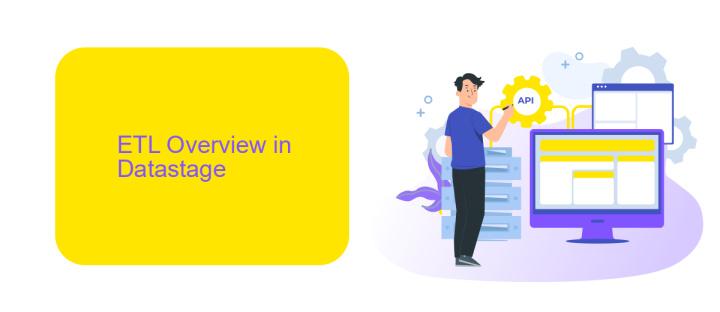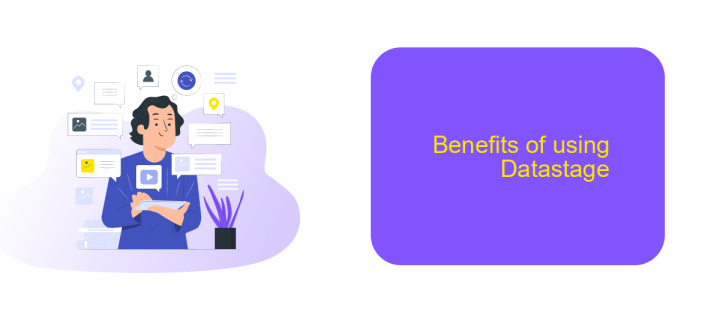Data Specialist ETL Datastage
In today's data-driven world, the role of a Data Specialist with expertise in ETL (Extract, Transform, Load) processes using IBM's DataStage is crucial. These professionals ensure seamless data integration, transformation, and loading, enabling organizations to derive meaningful insights from their data. This article explores the key responsibilities, skills, and tools essential for a Data Specialist ETL DataStage expert.
Introduction
In today's data-driven world, the role of a Data Specialist ETL Datastage is crucial for organizations aiming to leverage their data assets effectively. These specialists are responsible for designing, developing, and managing ETL (Extract, Transform, Load) processes using IBM's Datastage tool, ensuring seamless data integration and transformation across various systems.
- Design and implement ETL processes to extract data from multiple sources.
- Transform data to meet business requirements and standards.
- Load data into target systems for analysis and reporting.
- Ensure data quality and consistency throughout the ETL pipeline.
- Optimize ETL performance and troubleshoot issues.
Moreover, integrating these ETL processes with other services, such as ApiX-Drive, can significantly enhance their efficiency. ApiX-Drive facilitates the automation of data workflows, enabling seamless integration between various applications and systems. This not only streamlines data management but also allows organizations to respond more swiftly to business needs and opportunities.
ETL Overview in Datastage

ETL (Extract, Transform, Load) is a critical process in data management, and IBM's Datastage is one of the leading tools for executing ETL workflows. Datastage allows users to extract data from various sources, transform it according to business rules, and load it into target databases or data warehouses. Its graphical interface and extensive library of pre-built connectors simplify the process, making it accessible for both technical and non-technical users.
Datastage supports integration with numerous data sources, including databases, cloud services, and applications. For instance, using a service like ApiX-Drive can further streamline the integration process. ApiX-Drive offers automated data transfer between applications, ensuring that data flows seamlessly into Datastage for further processing. This integration capability is crucial for maintaining data consistency and accuracy, enabling organizations to make informed decisions based on reliable data. Overall, Datastage's robust ETL capabilities and its compatibility with services like ApiX-Drive make it an indispensable tool for modern data management.
Datastage Components and Architecture

IBM DataStage is a powerful ETL tool designed to handle large volumes of data. It offers a range of components and an architecture that supports complex data integration tasks. The core components of DataStage include the Designer, Director, and Administrator, each serving a unique purpose in the ETL process.
- Designer: This component is used for creating and designing ETL jobs. It provides a graphical interface for building data flows and transformations.
- Director: The Director component is used for running, scheduling, and monitoring ETL jobs. It helps in tracking the progress and performance of data integration tasks.
- Administrator: This component manages the overall DataStage environment, including user permissions, project settings, and server configurations.
DataStage architecture is built on a client-server model, ensuring scalability and efficiency. The server handles the execution of ETL jobs, while the clients (Designer, Director, and Administrator) provide interfaces for development, monitoring, and management. For seamless integration with other systems, services like ApiX-Drive can be utilized to automate data transfers and streamline workflows.
Benefits of using Datastage

DataStage is a powerful ETL tool that offers numerous benefits for data specialists. One of the key advantages is its ability to handle large volumes of data efficiently, making it ideal for enterprises with extensive data processing needs. Its robust architecture ensures high performance and scalability, which are critical for maintaining smooth operations as data grows.
Another significant benefit of using DataStage is its user-friendly interface, which simplifies the process of designing, developing, and managing data integration workflows. This intuitive interface reduces the learning curve for new users and enhances productivity for experienced developers.
- Seamless integration with various data sources and platforms
- Advanced data transformation capabilities
- Comprehensive error handling and logging features
- Support for real-time data processing
- Robust security and compliance features
In addition to these features, DataStage integrates well with services like ApiX-Drive, which streamline the process of setting up and managing integrations. This enables organizations to connect disparate systems effortlessly and ensures that data flows smoothly across the enterprise, enhancing overall efficiency and decision-making capabilities.
- Automate the work of an online store or landing
- Empower through integration
- Don't spend money on programmers and integrators
- Save time by automating routine tasks
Conclusion
In conclusion, the role of a Data Specialist ETL Datastage is pivotal in transforming raw data into meaningful insights that drive business decisions. Mastery of ETL processes, coupled with proficiency in tools like IBM Datastage, enables specialists to efficiently manage and optimize data workflows. This expertise ensures that data is consistently accurate, timely, and accessible, which is crucial for maintaining the integrity of business intelligence systems.
Moreover, leveraging integration services such as ApiX-Drive can further enhance the efficiency of data management tasks. ApiX-Drive simplifies the integration process, allowing seamless connectivity between various applications and data sources. This not only reduces the time and effort required for manual data handling but also minimizes errors, thereby improving overall data quality. As businesses continue to rely heavily on data-driven strategies, the importance of skilled Data Specialists and robust integration tools cannot be overstated.
FAQ
What is ETL in the context of DataStage?
How do you handle error logging in DataStage?
Can DataStage integrate with cloud-based data sources?
What are some best practices for optimizing DataStage performance?
How can I automate and manage ETL workflows in DataStage?
Apix-Drive is a simple and efficient system connector that will help you automate routine tasks and optimize business processes. You can save time and money, direct these resources to more important purposes. Test ApiX-Drive and make sure that this tool will relieve your employees and after 5 minutes of settings your business will start working faster.


